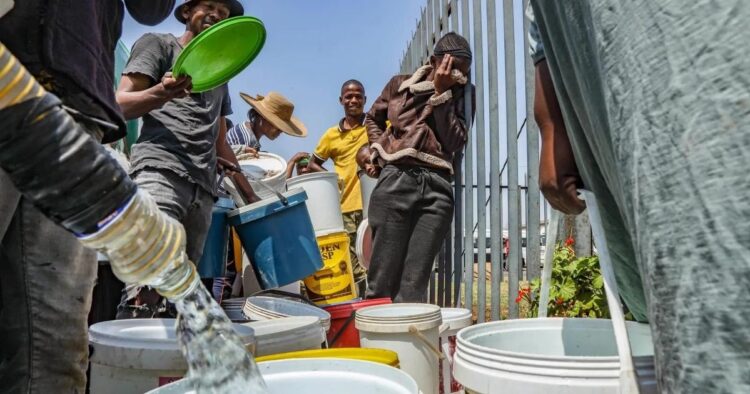Duane Riley faces a frustrating predicament every time he turns on his taps in Johannesburg, South Africa’s largest city. Instead of a steady flow, his pipes shudder loudly, often yielding no water at all. This paradox unfolds against a backdrop where Johannesburg currently possesses an ample water supply, yet fails to distribute it effectively. Riley’s experience is emblematic of a broader issue plaguing the city, characterized by crumbling infrastructure, inadequate maintenance, corruption, and a failure to plan for population growth.
While Johannesburg contends with the natural dryness of South Africa exacerbated by the climate crisis, the recent predicament isn’t solely due to drought. Authorities assert that the dams are currently full, but a weeks-long heat wave has spiked water demand to unprecedented levels. Residents, like Riley, frequently endure water outages lasting for hours or even days, impacting various parts of the city, from affluent suburbs to the sprawling township of Soweto.
Frustrated by prolonged water shortages, residents like Riley and Ravin Singh are mobilizing against the lack of basic services. Riley has organized protests highlighting the urgent need for maintenance and infrastructure improvements. Singh, who founded the Water Crisis Committee, has witnessed his neighborhood in northeastern Johannesburg grapple with sporadic water access, forcing families to adapt their daily routines and leaving the elderly particularly vulnerable.
In response to mounting pressure, government officials acknowledge the pressing need for infrastructure renewal and improved response times to pipe bursts and leaks. Johannesburg Water has urged residents and businesses to reduce water consumption by 10%, emphasizing the importance of fixing leaks and conserving water. Despite these calls, Singh believes more proactive measures are necessary to address the underlying issues driving the water crisis.
As Johannesburg navigates its water woes, it faces a pivotal moment where behavioral changes, infrastructure upgrades, and concerted efforts are crucial to avert a looming catastrophe. With the memory of Cape Town’s near miss with “Day Zero” still fresh, Joburgers are left wondering if their city can rise to the challenge and avoid a similar fate. The path forward demands a collective commitment to sustainability, resilience, and equitable access to this most essential resource.

















Comments